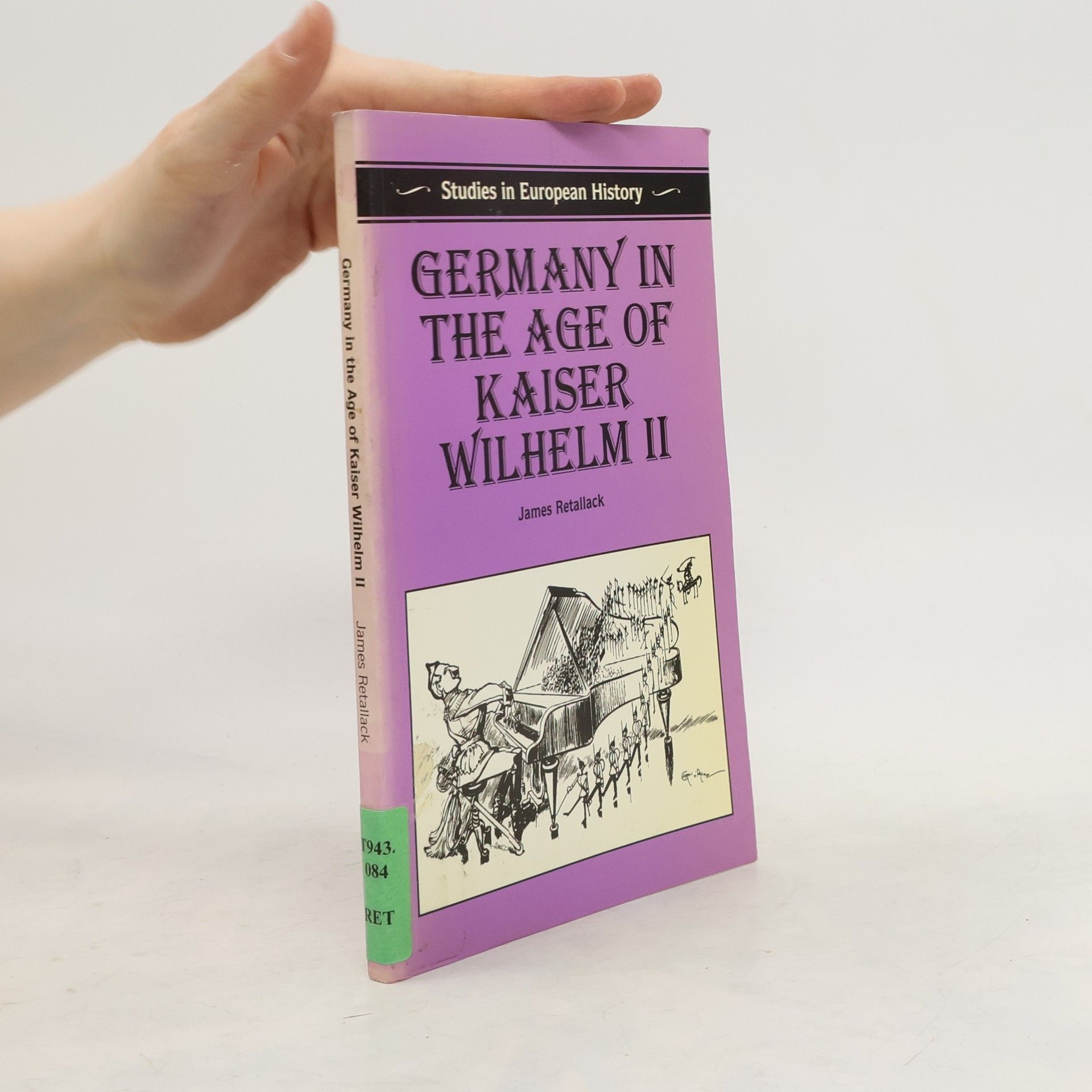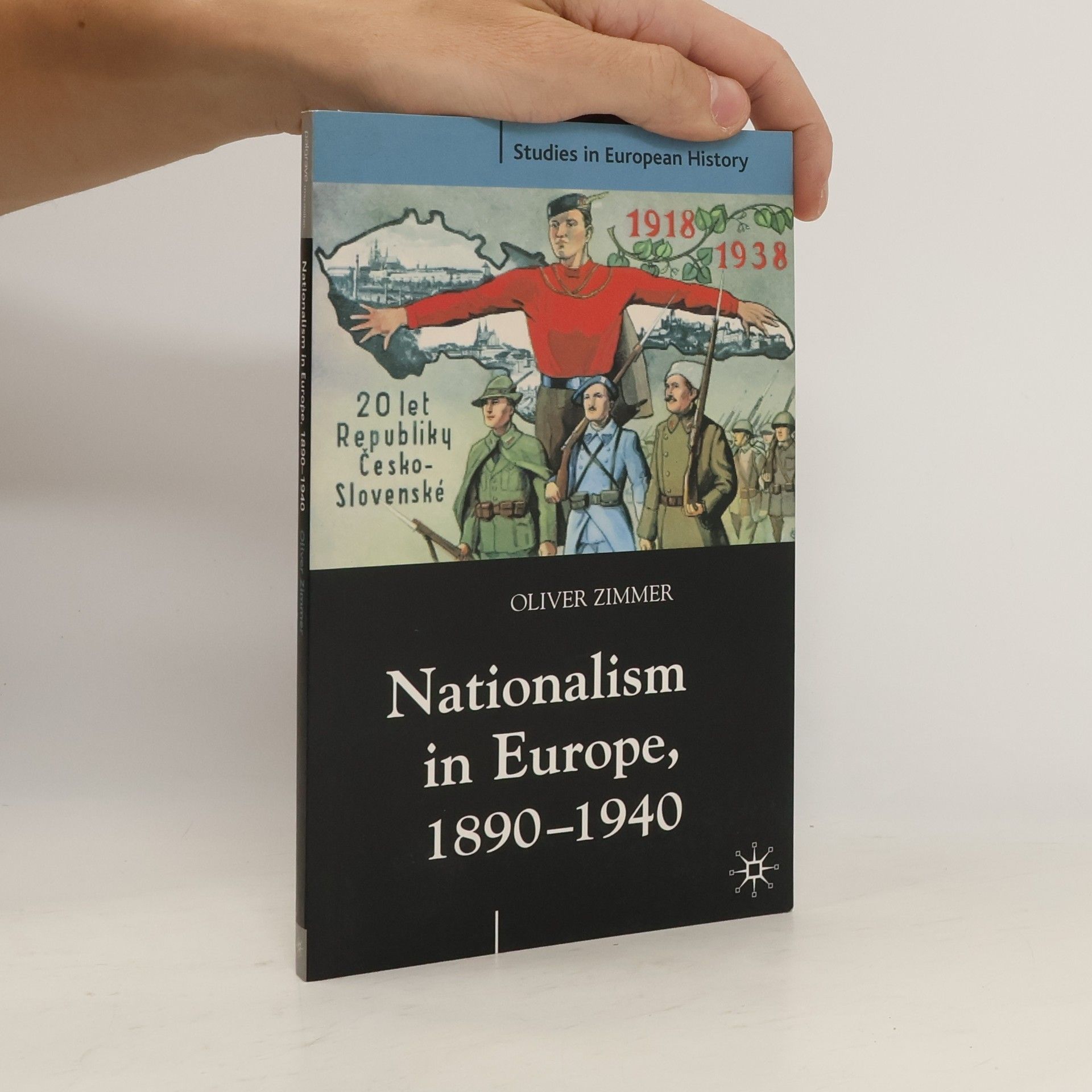Studiën over Europese geschiedenisReeks
Deze serie duikt in de diepten van de Europese geschiedenis en biedt inzichtelijke verkenningen van cruciale momenten en processen die het continent hebben gevormd. Het onderzoekt politieke, sociale en culturele transformaties, met de nadruk op hun onderlinge verbanden en langetermijngevolgen. Elk deel presenteert origineel onderzoek en nieuwe interpretaties, waardoor ons begrip van de complexe Europese ontwikkeling wordt verrijkt.






Aanbevolen leesvolgorde
Geoffrey Ellis offers a synthesis of research into the aims and effects of Napoleonic rule in France and in conquered Europe. Thoroughly revised, this second edition provides much more extensive coverage of Napoleon's treatment of the annexed lands and subject states of the Grand Empire. schovat popis
The origins, nature and effects of the Revolution have been the themes of a voluminous literature, especially since the 1950s, and there has been sharp disagreement among historians about them.
After the Revolution in October 1917, Soviet Russia tried to establish an alternative form of social organization based on the ideology of communism and the practices of Soviet democracy. This system inspired millions and achieved the industrialization of Russia, but ultimately it failed. The dissolution of the communist order by 1991 was accompanied by the disintegration of the country. Communism in Russia: a- provides a fresh, clear and concise view of the history of communism and Russia in the twentieth century, and the interaction of the two; b- offers an original analysis combining the history of an ideology and the fate of a nation; c- traces the connections and tensions between communist ideology and Russian realities, and explains the reasons for the collapse of the system; and d- incorporates the latest research and scholarship on the subject. -- Back cover
In this radical reassessment, Jeremy Black challenges many of the established assumptions about the so-called Military Revolution of 1560- 1660. Rather than seeing the latter as the consequence of the former, Dr Black argues that it makes more sense to see the former as a result of the latter.
Enlightenment
- 752bladzijden
- 27 uur lezen
For generations the traditional focus for those wishing to understand the roots of the modern world has been France on the eve of the Revolution. This work makes a case for considering Britain the true home of modernity - a country driven by an exuberance, diversity and power of invention comparable only to twentieth-century America. schovat popis
The Fall of Soviet Communism, 1986-1991
- 144bladzijden
- 6 uur lezen
In 1991, Communist rule in the Soviet Union came to an end after 84 years, and the world's largest state, one of the two global superpowers, broke up into fifteen independent countries. Few had predicted such an outcome when Mikhail Gorbachev became the leader of the Soviet Union six years before. číst celé
The Formation of the First German Nation-State, 1800-1871
- 159bladzijden
- 6 uur lezen
Many accounts of German unification focus on war, diplomacy and Bismarck and on the crucial ten years up to 1871.
Golden Age Spain
- 128bladzijden
- 5 uur lezen
Was the Golden Age of Spain in the sixteenth century an illusion? By introducing and examining some of the key issues and themes involved, Henry Kamen offers a balanced discussion of this question. 2nd edn has been thoroughly revised and rewritten in the light of recent research and new chapters added covering religion and culture.
The Terror in the French Revolution
- 128bladzijden
- 5 uur lezen
We now live with the threat and the reality of political terror and terrorists. What are its links with the terrors of the present day?This established text examines a range of key issues, analyses the terror's background and traces the course from the fall of the Bastille in 1789 to the work of the guillotine during the terror of 1793-4.
The Holy Roman Empire has always caused tremendous confusion for students of European history, and this book sets out to provide a clear account of this remarkable organisation - comparable in many ways only to the modern European Union - and its profound impact during its three centuries of existence.
This popular, concise and approachable text discusses the key debates and themes surrounding the Russian Revolution. The expanded fourth edition has been thoroughly revised and updated in the light of the latest research, and now features a new scene-setting Introduction and maps.
Germany in the Age of Kaiser Wilhelm II
- 133bladzijden
- 5 uur lezen
This lively and concise new book uses a dual approach to introduce students and non-specialists to Wilhelmine Germany (1888-1918). It surveys social, economic, political, cultural and diplomatic developments in an age of tumultuous upheaval. It also explains why historians have so often reversed the interpretative 'switches' guiding research on this period. By highlighting the breadth of historical change under Wilhelm II and the evolution of opposing viewpoints about its significance, this book provides easy access to an epoch - and a debate - characterised more by controversy than consensus.
The German Reformation
- 128bladzijden
- 5 uur lezen
In recent years, new approaches to the history of the Reformation of the Church have radically altered our understanding of that event within its broadest social and cultural context. In this concise study, R. W. Scribner provides a synthesis of the main research, with special emphasis on the German Reformation, and presents his own interpretation of the period. The second edition of this successful text now includes a new Introduction, a supplementary chapter and a supplementary bibliography by C. Scott Dixon.
The Cold War 1945-91
- 196bladzijden
- 7 uur lezen
Michael Dockrill's concise study of the early years of the Cold War between the Western Powers and Soviet Union has been widely acclaimed as an authoritative guide to the subject. In this second edition, he and Michael Hopkins bring the story up to the events of 1991, and also expand coverage of key topics.
While nationalism had become politically significant well before the late nineteenth century, it was between 1890 and 1940 that it revealed its political explosiveness and destructive potential. With a In Nationalism in Europe, Oliver Zimmer carefully examines key issues from this time, such as: the modernity of nations and nationalism, the formation of the nationalizing state and the significance of national ritual for modern mass nations, the ways in which nationalism shaped the treatment of minorities, the relationship between nationalism and fascism, and the perception of nationalism by liberals and socialists. Zimmer's account is more explicitly focused on conceptual issues than most texts on the subject, and also more historical and historiographical than many of the existing theoretical overviews. The result is an incisive examination of the most powerful ideology of modern times.
This is a concise but wide-ranging account of all aspects of the Scientific Revolution from astronomy to zoology. The third edition has been thoroughly updated, and some sections revised and extended, to take into account the latest scholarship and research and new developments in historiography.
Stalinism
- 108bladzijden
- 4 uur lezen
Drawing on research based on access to recently-opened Soviet archives, this revised edition provides a thematic account of the nature of Stalinism. The book surveys the arguments about the origins of the Stalinist phenomenon and discusses the way in which the different faces of Stalinism (economic, social, cultural and political) changed over time. It concludes that the fall of the USSR was connected to the nature of Stalinism.
Karin Friedrich locates Brandenburg-Prussia in its historical, political, religious and economic context, from the demise of the Teutonic Knights to the Napoleonic crisis. Synthesising debates, the study focuses on key themes such as absolutism, foreign politics and the Enlightenment in order to provide a fresh reassessment.
The two Germanies, arising from the unpromising ashes of defeated Nazi Germany, came to represent opposing models of state and society. schovat popis

